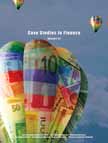Modi Rubber vs. Financial Institutions
|
|
ICMR HOME | Case Studies Collection
Case Details:
Case Code : FINC015
Case Length : 9 Pages
Period : 1989 - 2001
Pub. Date : 2002
Teaching Note : Available
Organization : Modi Rubber UT
Industry : Automobile & Automotive, Financial Services
Countries : India
To download Modi Rubber vs. Financial Institutions case study (Case Code:
FINC015) click on the button below, and select the case from the list of available cases:

Price:
For delivery in electronic format: Rs. 200;
For delivery through courier (within India): Rs. 200 + Shipping & Handling Charges extra
» Finance Case
Studies
» Short Case Studies
» View Detailed Pricing Info
» How To Order This Case
» Business Case Studies
» Case Studies by Area
» Case Studies by Industry
» Case Studies by Company

Please note:
This case study was compiled from published sources, and is intended to be used as a basis for class discussion. It is not intended to illustrate either effective or ineffective handling of a management situation. Nor is it a primary information source.
Chat with us

Please leave your feedback

|
|




<< Previous
Excerpts
The Modi Rubber Story
Since the early days of MRL, B K Modi and V K Modi were reported to have 'rarely seen eye to eye.' Even after they signed a shareholder's agreement, their relationship never really improved.
|
One of the main reasons for their differences was B K Modi's desire to get a higher share in MRL. The Modis had been defaulting on FI loans since the 1980s. After a formal split in the family in 1989, the Modis refused to repay the money they owed the FIs on the grounds that the crossholdings of the various family factions in Modi companies were so complex that the liability of each of the brothers could not be fixed till the division of property was effected.
Since the Modi brothers could not arrive at an equitable division of assets, the Government appointed an arbitrator from IFCI. The arbitrator came up with a solution, which was summarily rejected by the Modis...
|

|
The Open Offer
In March, 1998, the Modis agreed to repay the entire outstanding FI loans if the FIs sold their stake to MRL for a price higher than the ruling market price of Rs 26.90 a share. This development was attributed to an agreement between the Modi brothers to put an end to their quarrels.
|
|
The Modis offered to buy back UTI's holding in MRL at Rs 58 a share. However, UTI was asking for Rs 70 per share. The FIs had formed a committee to negotiate the price at which their holdings were to be sold. However, the negotiations reached a deadlock since the FIs were not willing to bring down the sale price from Rs 123 per share. Meanwhile, MRL's sales declined to Rs 1.96 billion in the first quarter of 1998 from Rs 2.16 billion in the same period in the previous year. This was largely due to the shutting down of one of the company's units. In November, 1999, the Modis appointed Hong Kong & Shanghai Banking Corporation (HSBC) to provide a blueprint for increasing their stake in the company to 51%... |
Excerpts Contd... >>
|
|









